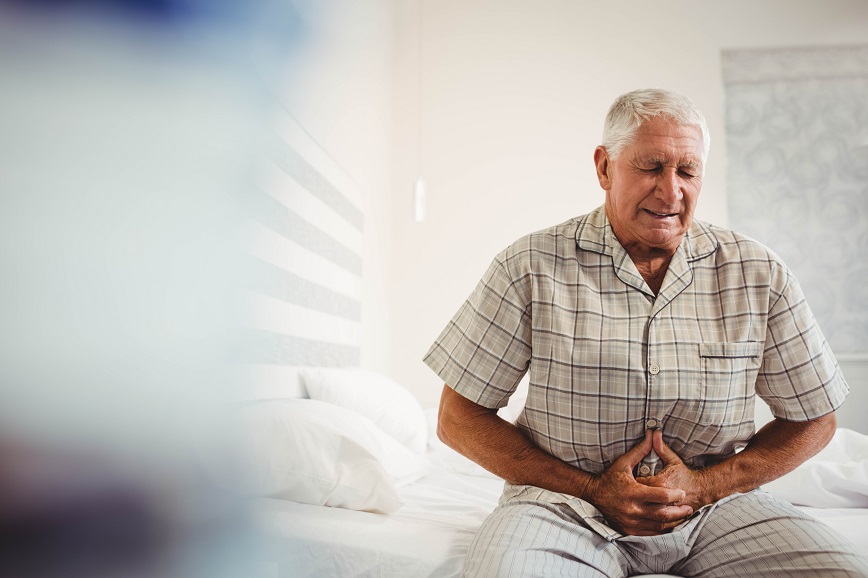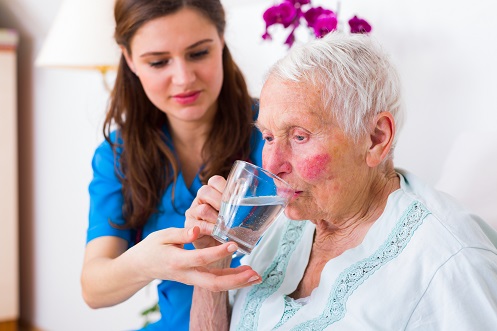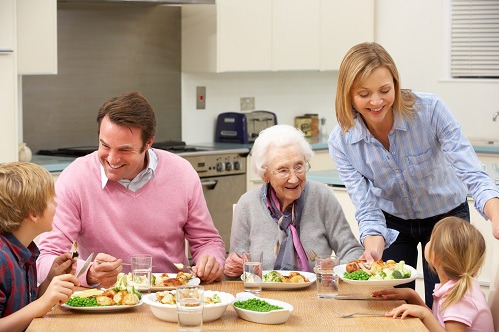Contents
Best Tips for Preventing Dehydration in Elderly Loved Ones
Caregivers often find preventing dehydration in elderly loved ones quite challenging. In fact, often the problem worsens quickly before being noticed.
Dehydration and its effects seem to follow our older adults. But managing and even preventing our elderly from this condition is possible. Check out our best tips for expert advice.
What is Dehydration?
In simple terms, dehydration occurs when your body’s water output surpasses the water intake. Our bodies call for water for many different functions. These include carrying healthy nutrients to the body cells and helping manage body temperature through sweating. Water also eliminates body waste. In fact, becoming just moderately dehydrated can also have a harmful impact on an older adult’s body.
In the elderly, dehydration is quite common, though manageable. As your loved one ages, their sense of thirst decreases. However, their kidney function lessens, too, making them less able to maintain water. And it makes them less likely to perceive they should be drinking.
That is why the risk of dehydration worsens in elderly men and women. Thus, it can lead to your loved one’s hospitalization or more dangerous health risks. You should pay close attention to their water intake and attempt to ensure they stay hydrated.
Due to mobility issues, your loved ones may feel that it’s challenging to get up throughout the day and get a drink. However, you should note that this makes it even more critical that they do.
Experts warn that preventing dehydration in elderly men and women is essential. Failure to do so usually results in major health problems. Especially if your loved ones are over age 65, it might even cause hospitalization. Living well hydrated also helps some medications to work most efficiently.
Every individual has various preferences, habits, and medical issues, so what’s most significant is to be innovative and attempt various thoughts until discovering ones that work for your elderly loved ones. Keep reading this article to know the causes, symptoms, effects, and best tips to get seniors to drink more water.
What are the Main Causes of Dehydration in Elderly?
Some factors make dehydration a common issue in the elderly. With increasing age, our sense of thirst decreases making it difficult to feel thirsty.
Also, our fluid reserves decrease as we get older. In an aged person, the kidneys do not work as efficiently which causes an increase in loss of water through urination.
There is also a mobility problem in elders due to illness or any other issue. They use the restroom and lay down on the bed all day. They feel it a very effortful task to get up several-time throughout the day and drink water. Overall means that they avoid drinking, even when they feel thirst.
Dehydration in the elderly can be caused by vomiting, illness, high fever, diarrhea, and medication. These diseases result in the loss of electrolytes and water in a very short time span. Vomiting and diarrhea at the same time remove the minerals and fluid from the body. Many medications work the same as a diuretic, due to which seniors lose water through sweat. These medications increase urination that leads to dehydration.
Sweating in excessive amounts can cause tremendous water loss. If you are doing some heavy tasks and do not drink water, you would be dehydrated very soon. In hot weather, the sweat rate becomes faster as compared to normal weather. Moreover, when the air is humid, sweat evaporation might not be possible, and sweat gets cool quickly that result in increased temperature of the body. In these circumstances, you need more fluids to maintain body temperature.
Common Symptoms of Dehydration in Elderly
It is not easy as it looks to notice when an elderly is dehydrated. However, it’s very significant to know the common symptoms, as dehydration can lead to serious health issues like urinary tract infection, respiratory and constipation, and kidney stones.
Moreover, dehydration in the elderly can lead to the risk for and an extended stay in the hospital. As a caregiver, you must note all the signs and symptoms to consult a doctor if you notice any loved ones’ symptoms.
Alzheimer’s or dementia in the elderly has decreased senses of thirst, resulting in becoming dehydrated very quickly. Dehydration symptoms could be irritated by or mistaken for dementia, making it significantly harder to tell how your loved one is doing. Give close consideration to your elderly loved ones for dehydration signs and symptoms, which helps prevent dehydration in elderly.
It’s not all the time straightforward to study when your loved one is dehydrated. However, it’s essential to know what few dehydration warning signs that affect the elderly’s dehydration can lead to hospitalization.
Mild Dehydration Symptoms
- Producing very small amounts of dark-colored and smelly urine
- Frequent Headaches
- Feeling very weak and unwell
- Feeling dryness in the mouth; thick saliva with a dry tongue
- Cramping in limbs
- Sleepiness or irritability
- Dizziness and confusion all the time
- Constipation and fatigue
- Rapid heart rate
- Dry skin more than usual
- More noticeable movement issues, like finding difficulty while walking
Serious Dehydration Symptoms
- Dry and sunken eyes with no tears while crying
- Severe cramping and muscle contractions in limbs, back, and stomach
- Rapid but weak pulse
- Wrinkled skin with no elasticity. It can be difficult to recognize in old adults, but you can check it by lightly pinch the skin. If the skin does not back bounce, then it is a sign of dehydration
- Breathing rate would be faster than the normal rate
- Bloated stomach
- Low blood pressure
- Convulsions

Effects of Dehydration in Elderly
There are some reasons why the seniors are more allowing to fluid and electrolyte deficiencies. As your loved one’s age, their body’s capability to conserve water is reduced. It can make it tougher to adjust to things like alternate temperatures.
Moreover, the sense of being thirsty drops with age. When somebody feels thirsty, essential liquids could, as of now, be significantly low. Specific medical conditions and treatment can impact the elderly’s ability to maintain fluids.
Further, seniors with dementia also forget to eat and drink, which is also one of the effects of dehydration in elderly. It might have problems in swallowing.
It’s essential to perceive dehydration side effects as early as possible. On the off chance that dehydration isn’t identified and treated, the health impacts are enormous at whatever age in life. However, it intensified for seniors and can immediately get dangerous.
Dehydration may have a lot of deadly impact on the elderly and affect their brain’s functioning ability.
Being completely hydrated involves the workout, which can expand determination. It brings down the pulse and improves the aging body’s improvement time while likewise soothing and enhancing positive tempers.
Decreased renal capacity is also one of the effects of dehydration in elderly. The kidneys assume an essential role in liquid regulation, yet their ability declines with age. The hormonal reaction to dehydration (which is critical to fluid stability) might be slowed down.
Dehydration is related to inferior health results, such as expanded hospitalization and mortality, such as a two-overlay increase in patients’ mortality.
Indeed, gentle dehydration offensively affects mental performance and expands sensations of tiredness. Mental capacities affected include memory, consideration, and focus, and response time.
Other complications
Frequent complications related to dehydration include incorporating low pulse rate, dizziness, weakness, and expanded danger of falls. Defectively hydrated seniors are bound to create pressure sores and even skin conditions.
Dehydration leads to serious urinary and kidney problems such as kidney stones, urinary tract infections, and even kidney failure.
Water assists with keeping the urinary portion and kidneys healthy. At the point when liquid intake has reduced, the danger of urinary plot infections rises.
Lacking water intake is also the most well-known reason for constipation. In aging or seniors who are not hydrated enough, drinking more water can build stool frequency and improve fiber consumption.
If you are doing hard exercises without drinking enough fluids, you may get life-threatening heatstroke due to heat injury.
One of the most life-threatening effects of dehydration is low blood volume shock. It mostly occurs when there is a drop in oxygen and blood pressure volume.
Carrying the electrical signal from cell to cell, electrolytes are used, such as sodium and potassium. If the amount of electrolytes becomes unbalanced, then the electrical message mixes up, which leads to a loss of consciousness.
After discussing all the effects briefly, it’s time to dive deeper to discuss the tips for preventing dehydration in elderly.
7 Efficient Tips to Prevent Dehydration in Elderly
Dehydration in seniors seems very common. Considering this problem, we have researched and found helpful tips to prevent dehydration.
1. Drink more water to stay hydrated:
As we discussed earlier, when the amount of water output in the body exceeds the amount of water intake, it causes dehydration. 60 % of water is stored in lean tissues, but old adults have fewer lean tissues. Less lean tissue means water percentage is very less in their bodies that lead to dehydration. Most adults should drink 40 ounces of water per day.
The importance of water.
- Drinking water helps you to manage your body’s temperature through the sweating process. Your body needs water to improve bowel movements, urinating, and the sweating process.
- Water provides essential nutrients to the cell and also creates saliva.
- It eliminates body wastes through urination and protects the spinal cords, joints, tissues of your body.
- Drinking water increases your physical activity performance. Athletes drink water and perspire from 6 to 10 percent while performing physical activities.
- Physical exercise in hot weather causes low blood pressure problems and dehydration. To prevent these problems, you need water.
Digestive Help
- To improve the digestion process, you need to drink more water. Drinking water while having a meal breaks down the food and provides energy to do work efficiently.
- It boosts the nutrient absorption process. Including meal breakdown, it also dissolves minerals, vitamins, and many other nutrients. After dissolving, it provides all these vitamin components to your body that increase your health.
- Water is the best weight loss solution for heavyweight patients! According to recent studies, drinking water while doing exercise and dieting can lose your body’s extra pounds weight!
- Water is your best illness partner! Prevent your body from serious medical problems like a kidney stone, hypertension, and urinary tract infection by drinking more water! It is also beneficial for boosting your brain functions.
- Water intake helps to brighten your skin by promoting the production of collagen that hydrates your skin.
Ideas to drink enough water:
- To have enough amount of water per day, you should keep track of water intake. In hot weather, try to drink more water as compared to a normal routine.
- Your water bottle should be part of your every journey. If you have a water bottle with you, then you can drink water whenever you feel thirsty.
2. Bottoms Up
Add tomato juice and coconut water to slow down the elimination of water. Extend liquid consumption as they help to stay hydrated. You should enjoy fruit juices such as apple, grapes, and prune juices to get energy. Studies have shown that these drinks contain a rich amount of electrolytes and potassium that are very efficient for hydration.
Strictly avoid alcohol and coffee consumption as they can produce a diuretic effect if taken in high quantity. Drinking alcohol and coffee leads to loss of water in the body called dehydration.
Try to entertain older adults with milkshakes, sports drinks, and other tastier alternatives of water, beverages, or juices. Through this approach, they might drink these flavors regularly!
3. Avoid Excessive Evaporation & Elimination
In the summer season, sweating is a big problem. In these conditions, you have to stay cool in order to be hydrated. Maintain comfortable air exchange, humidity, and cooler temperature with air conditioners. Stay in the shade when you are at outside places and use a fan for maintaining temperature.
To be protected from senior dehydration, you need to pick fluids wisely. Many beverages are in the market during the summer season, but they can’t match with water! These beverages are not the best way for regular hydration processes.
4. Choose Time Wisely
In hot weather conditions, it is not enough to have a shade under something. It can’t prevent excessive sweating, dehydration, and rising body temperature. The only way to prevent these things is to avoid going outside when the sunrise is at its peak, and the rays are strong. According to researches, you can go outside before 10 AM and after 4 PM in the summer season. The sun rays are not really strong in these time spans, so we recommend going outside in this time period.
5. Use a Moisturizer
The biggest organ of our body is the skin, and evaporation occurs all day through our skin. It means elders should take care of their skin. If seniors are facing dry skin problems, they should have to maintain moisture on their skin. You can find moisturizers according to the dryness level and type of your skin. Many moisturizers are available in the market containing water and oil as a sealant.
6. Watch What They Eat to help in preventing dehydration in elderly loved ones
Certain foods are water-rich than other foods. The use of cucumber, celery, vegetables, low sodium broths or soups, watermelon, yogurt, jello, strawberries, and fruits can be considered a healthy food plan. So, they should be part of every meal plan as they fulfill the water needs. Moreover, meat and lean fish reduces the loss of water while consuming starchy foods and high fat. A water-rich meal is beneficial for elder hydration. Also, check the urine color, whether it is pale yellow or dark.
7. Encourage them to drink more water
Drinking more water is very beneficial for your body. If you are exercising or doing physical activity in the summer season, you need to drink more water than a normal routine. This practice would help you to meet water requirements. If you feel some symptoms from the above-mentioned ones, then drink more fluid responsibly!
What are the treatment options for preventing dehydration in elderly adults?
Dehydration treatment includes refilling the lost fluids. If you face mild to moderate type dehydration, you should drink fluids like beverages and juices. Some diseases such as diarrhea or vomiting reduce electrolytes and water amount in the body. In these circumstances, intake water in different flavors of soft drinks and beverages.
If you are facing a serious dehydration issue, then we suggest checking your doctor.
When to see a doctor?
You should call immediately to your doctor if you or your member has the following:
- Has black or bloody stool
- Diarrhea for 24 hours or more
- Can’t keep down fluids
- Is irritable or disoriented and feel sleepier and less active than usual
Conclusion:
Dehydration is a very common disease in old adults. There are many causes of dehydration. In this article, we have covered all the important points about dehydration in elderly. From causes to symptoms and preventions to treatment, we have discussed each thing in-depth. Basically, dehydration occurs when we have a shortage of water in our bodies. In old adults, many causes lead to dehydration. In the case of dehydration, you should have easy access to water. If you found hydration symptoms and found proper prevention to get well soon, this article is for you! Just scroll to the top and read the article to get the advantage! If you find some queries, then we are open to you!
More Information
Tea provides hydration help, too.







